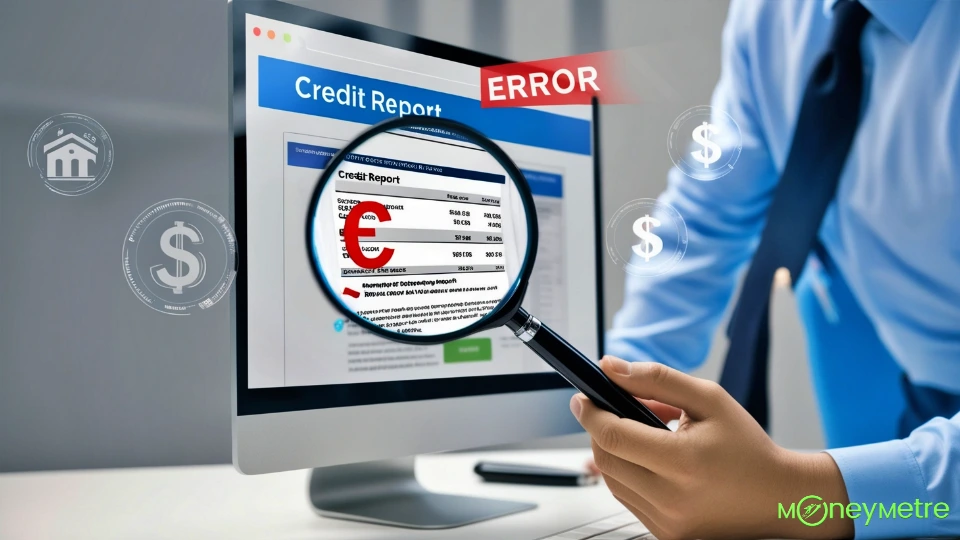Maintaining a healthy credit score is crucial in today’s world, especially if you’re looking to access credit facilities like loans, credit cards, or mortgages. In India, the CIBIL score is a widely used credit score that indicates your creditworthiness.
But what happens if you’ve had a rough financial period and ended up settling a credit card debt? Many people think that after a credit card settlement, it’s impossible to restore a good credit score.
Fortunately, there are ways to improve your CIBIL score after a credit card settlement. This guide will explain what a CIBIL score is, how it is impacted by credit card settlements, and provide actionable steps to rebuild your credit.
What is a CIBIL Score?
The CIBIL score (Credit Information Bureau (India) Limited) is a three-digit score ranging from 300 to 900. It reflects an individual’s credit history and behavior. A higher score indicates a better credit profile, making it easier to qualify for loans and credit at favorable interest rates.
The score is determined based on:
- Payment history: Consistency in paying EMIs or credit card bills on time.
- Credit utilization: The percentage of available credit you’re using.
- Credit mix: A balanced mix of secured and unsecured loans.
- New credit inquiries: Frequent applications for credit indicate dependency on debt, which can lower your score.
Credit card settlements negatively impact your CIBIL score. When you settle a credit card debt, it means you’ve paid a part of the outstanding amount as a compromise, rather than paying in full.
Lenders view this as a risk factor, reducing your CIBIL score. But with the right strategies, you can gradually rebuild it. Let’s go through some effective methods to improve CIBIL score after credit card settlement.
Ways to Improve Your CIBIL Score After a Credit Card Settlement
1. Pay Off Existing Debts Fully and On Time
The most effective way to rebuild your credit score is to focus on clearing any existing debts fully. Make sure you’re paying your EMIs, utility bills, and any other liabilities on time without delay. Consistent, timely payments over time reflect positively on your credit history.
- Set reminders for payment dates, or even better, opt for automatic payments to avoid missing deadlines.
- Try not to rely on minimum payments on your credit card bills; instead, aim to clear the full amount every month.
2. Avoid Taking on New Credit Immediately
After settling on a credit card, it’s essential to avoid applying for new credit, as this shows lenders that you’re dependent on borrowing. Each credit inquiry or new credit application also negatively affects your credit score. Instead, focus on building a stable financial base and let some time pass before seeking new credit.
3. Check Your CIBIL Report Regularly for Errors

Mistakes in your CIBIL report can be detrimental to your credit score. Regularly reviewing your report helps ensure that all information is accurate.
- Visit the official CIBIL website to obtain a free report once a year or subscribe to their services for more frequent reports.
- Look for errors such as incorrect loan amounts, settled accounts marked as defaults, or even fraudulent accounts under your name. If you find any discrepancies, report them to CIBIL for rectification.
4. Keep Credit Utilization Ratio Below 30%
Credit utilization is the percentage of credit limit you’re using out of your total available credit. If your utilization is consistently above 30%, it can indicate a dependency on credit, which can harm your score. Keeping your usage below this threshold is a good strategy to improve your CIBIL score after credit card settlement.
For example, if your credit card limit is ₹1,00,000, aim to keep your outstanding balance below ₹30,000.
5. Get a Secured Credit Card
One of the simplest ways to improve CIBIL score after credit card settlement is by using a secured credit card. These cards are backed by a fixed deposit, which reduces the risk for the bank. Regular use and timely payments of this card will reflect positively on your credit report and improve your score over time.
- Secured credit cards offer a controlled way to rebuild credit without risking default, as you already have a deposit in place.
- Make sure to pay off the bill in full and on time each month.
6. Keep Old Accounts Open and Active
Credit history length plays a role in your credit score. If you have an old credit card or bank account with a good history, keep it active. Closing old accounts could shorten your credit history and potentially lower your score.
- Use these old accounts periodically for small purchases and pay off the dues promptly.
- Maintaining older accounts shows a longer credit history, which is favorable in improving your CIBIL score.
7. Diversify Your Credit Portfolio
Lenders prefer borrowers who have a balanced credit mix. If you’re relying only on credit cards, consider adding other forms of credit, such as a small personal loan or a secured loan like a gold loan. This diversification demonstrates the ability to handle various types of credit responsibly, positively impacting your score.
8. Be Patient and Monitor Your Progress

Improving your CIBIL score after credit card settlement takes time. Monitor your score regularly, but be patient with the process. Most improvements become evident after six months of consistent positive behavior. While you may be eager to see quick changes, sustainable improvement requires ongoing commitment.
By following these strategies and staying financially disciplined, you’ll gradually see improvements in your CIBIL score after credit card settlement and move toward better credit opportunities.
Conclusion
Improving your CIBIL score after credit card settlement may seem challenging but with the right steps, it’s achievable. Start by addressing outstanding debts, making timely payments, maintaining low credit utilization, and considering getting a secured credit card.
By following these practices, you’ll be well on your way to rebuilding your credit profile. Remember, patience and consistency are key.
While it may take time to see significant improvements, your efforts will be worth it when you can access credit at favorable terms again. In the end, a good credit score isn’t just about securing loans; it’s about financial freedom and control.
Read Also: How to Improve CIBIL Score Immediately: 9 Effective Tips
FAQs on “How to Improve CIBIL Score After Credit Card Settlement?”
-
How long does it take to improve a CIBIL score after credit card settlement?
It typically takes 6-12 months of consistent positive credit behavior to see noticeable improvements in your CIBIL score after a credit card settlement.
-
Will a credit card settlement completely ruin my chances of getting a loan?
While a settlement does impact your score, with time and positive credit actions, you can improve your CIBIL score and increase your eligibility for loans.
-
Can I negotiate with my bank to remove the ‘settled’ status from my CIBIL report?
In some cases, banks may agree to remove the ‘settled’ status if you pay the full amount owed. This is known as a ‘negotiated settlement.’
-
Do secured credit cards help improve CIBIL scores after settlement?
Yes, secured credit cards are effective in improving credit scores as they offer a low-risk way to demonstrate responsible credit behavior.
-
What is the official website to check my CIBIL score?
You can check your CIBIL score on the official CIBIL website at https://www.cibil.com.
Read Other Latest Posts Below







